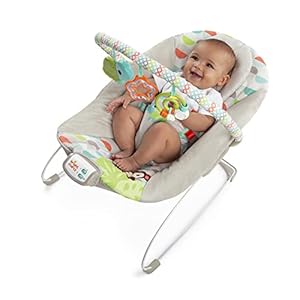
As a dad, you hold a crucial role in your baby’s feeding journey. From supporting breastfeeding to mastering bottle feeding techniques, your involvement can have a lasting impact. But there’s more to it than just feeding; by actively participating in mealtime bonding and seeking professional guidance when needed, you can create a nurturing environment for your little one. So, how can dads truly make a difference in baby feeding?
Supporting Breastfeeding Mothers
To best support breastfeeding mothers, encourage them to stay hydrated throughout the day. Breastfeeding can be dehydrating, so remind her to drink plenty of water. Offer to fill up her water bottle or glass whenever you notice it’s running low. It’s a simple gesture that can make a big difference in her breastfeeding experience.
Another way to support her is by creating a comfortable breastfeeding environment. Help her find a cozy spot to nurse where she can relax and feel at ease. Bring her a pillow or blanket if needed, and make sure she’s everything within arm’s reach so she doesn’t have to constantly get up.
Additionally, be a source of emotional support. Breastfeeding can be challenging, so let her know you’re there for her. Encourage her when she’s feeling discouraged and celebrate her successes. Your positivity and encouragement can help boost her confidence and make the breastfeeding journey smoother for both of you.
Learning Bottle Feeding Techniques
You can master bottle feeding techniques by practicing proper holding positions and ensuring a good latch for your baby. When holding your baby for bottle feeding, cradle them close to your body with their head slightly elevated to prevent choking. Support their head and neck with one hand while holding the bottle with the other. Position the bottle so the nipple is filled with milk to avoid air bubbles that can cause gas. Make sure the nipple is always full to prevent your baby from swallowing air.
To ensure a good latch, gently touch the bottle’s nipple to your baby’s lips and wait for them to open their mouth wide before inserting it. The nipple should be far enough into their mouth to reach the roof, where the feeding reflex is triggered. Avoid tipping the bottle too high, as this can cause your baby to swallow air. Take breaks during feeding to burp your baby and help release any trapped air, reducing the chances of discomfort or colic. Mastering these techniques will make bottle feeding a smooth and enjoyable experience for both you and your baby.
Feeding Schedule Coordination
Coordinating your baby’s feeding schedule with your partner can help create a consistent routine and promote shared parenting responsibilities. By working together to establish a feeding schedule that suits both your baby’s needs and your lifestyle, you can ensure that your little one is well-fed and nourished throughout the day. Start by discussing with your partner the best times for feeding based on your baby’s cues and daily activities. This collaboration can help distribute feeding responsibilities more evenly between the two of you, allowing for a more balanced approach to caring for your baby.
Setting a feeding schedule also helps in planning other activities around your baby’s needs. For instance, you can coordinate meal times with nap schedules or family outings, ensuring that your baby stays comfortable and content. Additionally, syncing your feeding times can create a sense of predictability for your baby, which can be comforting and reassuring for them. By working together with your partner to coordinate your baby’s feeding schedule, you can establish a harmonious routine that benefits the whole family.
Engaging in Mealtime Bonding
During mealtime bonding, share a smile with your baby as you engage in eye contact and gentle conversation. These moments aren’t just about nourishment but also about building a strong connection with your little one. Make the most of this time by creating a positive and loving atmosphere around mealtime.
Use this opportunity to talk to your baby in soothing tones, describing the food you’re feeding them or simply sharing stories. Your voice can be calming and reassuring, making the feeding experience more enjoyable for both of you. Encourage your baby to respond with sounds, gestures, or facial expressions, fostering early communication skills.
Mealtime bonding is a chance to show your baby that feeding is more than just a physical need; it’s a moment of closeness and love. Enjoy these moments together, focusing on the bond you’re creating through simple yet meaningful interactions. Your active participation during mealtime can lay a strong foundation for a positive feeding relationship.
Seeking Professional Guidance
When considering seeking professional guidance for baby feeding, consulting with a pediatrician can provide valuable insights and support. Pediatricians are trained to address various aspects of infant nutrition and can offer personalized advice based on your baby’s specific needs. They can help assess your baby’s growth and development, identify any potential feeding issues, and recommend suitable feeding strategies. Additionally, pediatricians can guide you on introducing solid foods, addressing feeding challenges, and ensuring your baby is receiving adequate nutrition for healthy growth.
In addition to pediatricians, lactation consultants can be instrumental in providing expert advice on breastfeeding techniques, managing common breastfeeding challenges, and ensuring proper latching and milk transfer. Their specialized knowledge can help you establish a successful breastfeeding routine and address any concerns or difficulties that may arise. Seeking professional guidance from pediatricians and lactation consultants can enhance your confidence as a dad in supporting your baby’s feeding journey and contribute to your baby’s overall health and well-being.
Baby products














